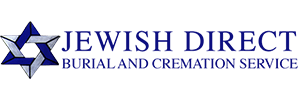
The Jewish Funeral
We are honored to serve Jewish families by providing funeral, Jewish cremation services, or cemetery services in accordance with Jewish custom. We understand the needs of today’s Jewish families because we share their history, experiences, and values.
Based on centuries of tradition and sensitive to Jewish law, the Jewish funeral is a modest, solemn religious service designed to honor the dead and provide support to the family and friends of the person who has passed. Through the traditional Jewish funeral, family and friends can honor the legacy their loved one leaves behind. Today’s Jewish families are also finding ways to blend Jewish tradition with their changing lifestyles. Your Jewish funeral director knows how to help you do both.
Jewish funeral tradition pays tribute to two primary principles. The first is Kavod Ha-Met, or Honoring the Dead, which teaches that it is of utmost importance to treat the body with respect and care from the time of death until the burial is completed.
In addition, performing acts of kindness for someone who has died is done with the knowledge that the kindness cannot be repaid by the deceased and thus has long been regarded as the ultimate act of selflessness. The second principle is the view that death is considered a natural part of the life cycle. As in the familiar concept “From ashes to ashes, dust to dust,” Jewish law teaches that the body should be returned to the earth from which it came.traditional Jewish funeral.
These two principles influence the following basic requirements of a traditional Jewish funeral:
Traditional Washing
In Jewish tradition, the body of the deceased is thoroughly washed. The Chevra Kadisha (holy society) prepares the deceased for interment by performing a bath known as the Taharah (purification), or the Rehisa (bathing). Such bathing ceremonies are performed for men by men, and for women by women.
Shemira / Watching
The body of the deceased is watched over until burial is completed. This practice honors the dead, and may be performed by a family member, a Chevra Kadisha member or other person arranged by the funeral home.
Shemira / Watching
The body of the deceased is watched over until burial is completed. This practice honors the dead, and may be performed by a family member, a Chevra Kadisha member or other person arranged by the funeral home.
K’reeah / Tearing of Garments
Before the funeral begins, immediate relatives tear their outer garments as a symbol of their anguish and grief. The rabbi may perform this ritual or present torn black ribbons to pin on the mourners’ clothes.
Tachrichim / Burial Garments
In traditional families, the deceased is buried wearing a simple white shroud, known as a tachrichim. The traditional white shroud symbolizes that all are equal before their Creator.
Aron / Casket
The deceased is buried in a casket constructed solely of wood. Use of a wooden casket is in keeping with the Rabbinical teaching which states, “Dust thou art, and to dust thou shalt return.”
K’vuhrah / Burial
The K’vurah B’kara is the actual burial of the deceased in the ground, filling the grave with earth until a mound is formed. To participate in filling the grave is considered a religious privilege and duty, and an expression of honor for the deceased. According to Jewish law, burial traditionally takes place as soon as possible after the death occurs. Recommended funeral attire consists of dark-colored clothing – a dress or skirt and blouse for women, and a jacket and tie for men. Men also wear a head covering known as a yarmulke.
After the burial, Jewish families mourn by sitting shiva, generally at the home of a close family member. Shiva is the traditional seven-day mourning period observed by the bereaved. During this period, condolence visits by friends and extended family are welcomed. Serving you in accordance with the traditions of your Jewish faith is an honor for us. With knowledge of Orthodox, Conservative and Reform Judaism, we are experienced in providing the Jewish funeral services and customs that are important to you and your family.
In your time of need, we are here 24 hours a day, 7 days a week. We offer a no-cost consultation to discuss the benefits of prearranging services.
We respect your privacy and will not sell or give away your contact information.

